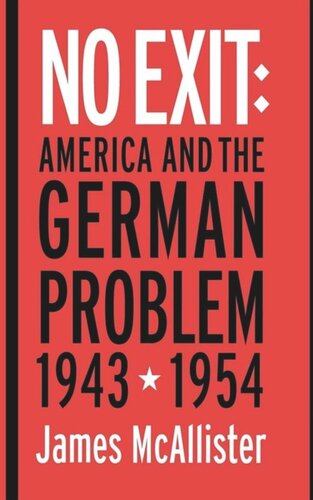

Most ebook files are in PDF format, so you can easily read them using various software such as Foxit Reader or directly on the Google Chrome browser.
Some ebook files are released by publishers in other formats such as .awz, .mobi, .epub, .fb2, etc. You may need to install specific software to read these formats on mobile/PC, such as Calibre.
Please read the tutorial at this link: https://ebookbell.com/faq
We offer FREE conversion to the popular formats you request; however, this may take some time. Therefore, right after payment, please email us, and we will try to provide the service as quickly as possible.
For some exceptional file formats or broken links (if any), please refrain from opening any disputes. Instead, email us first, and we will try to assist within a maximum of 6 hours.
EbookBell Team

4.1
30 reviewsJames McAllister outlines a new account of early Cold War history, one that focuses on the emergence of a bipolar structure of power, the continuing importance of the German question, and American efforts to create a united Western Europe. Challenging the conventional wisdom among both international relations theorists and Cold War historians, McAllister argues that America's central objective from the Second World War to the mid-1950s was to create a European order that could be peaceful and stable without requiring the permanent presence of American ground forces on the continent.The permanent presence of American forces in Europe is often seen as a lesson that policymakers drew from the disastrous experiences of two world wars, but McAllister's archival research reveals that both FDR and Eisenhower, as well as influential strategists such as George Kennan, did not draw this lesson. In the short term, American power was necessary to balance the Soviet Union and reassure Western Europe about the revival of German power, but America's long-term objective was to create the conditions under which Western Europe could take care of both of these problems on their own.In the author's view, the key element of this strategy was the creation of the European Defense Community. If Western Germany could be successfully integrated and rearmed within the context of the EDC, Western Europe would have taken the most important step to becoming a superpower on par with the United States and the Soviet Union. Understanding why this strategy was pursued and why it failed, McAllister asserts, has important implications for both international relations theory and contemporary questions of American foreign policy.